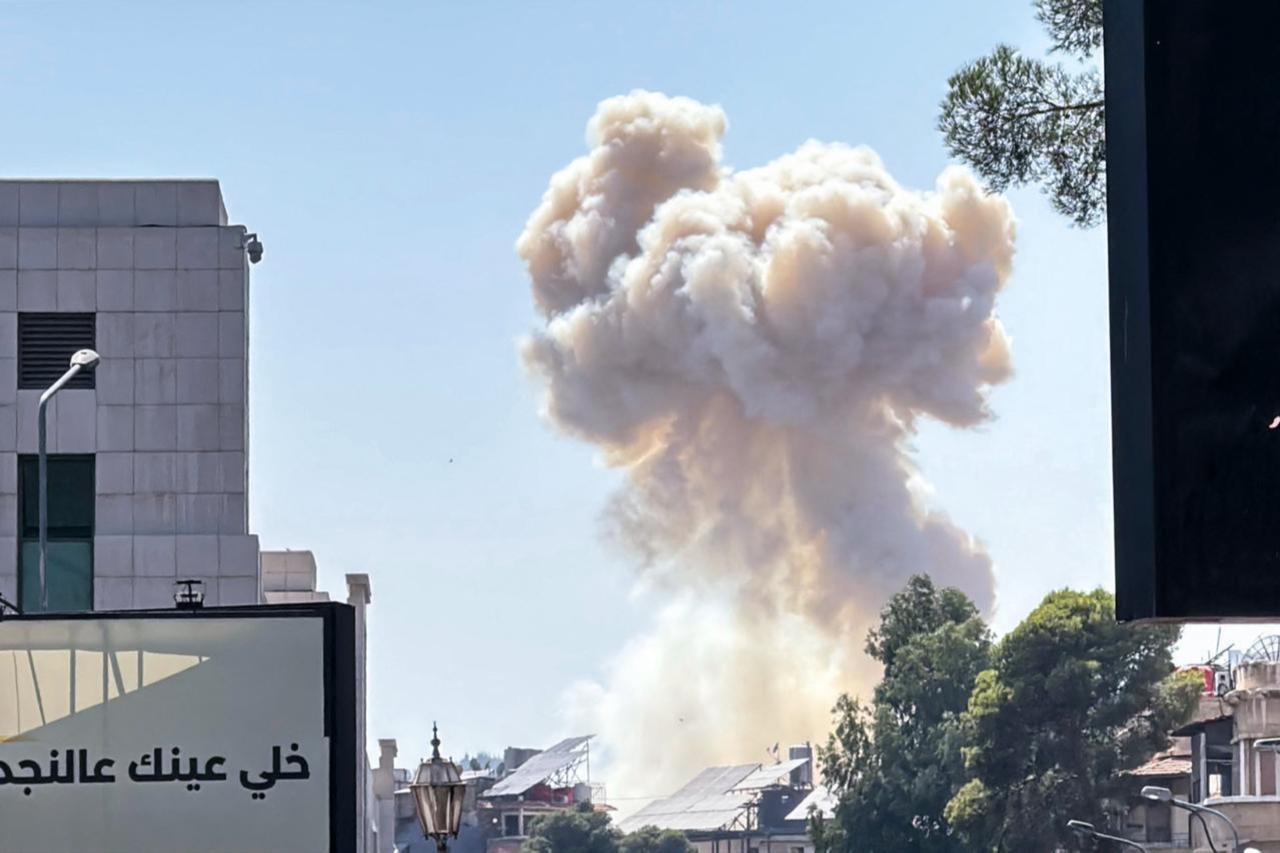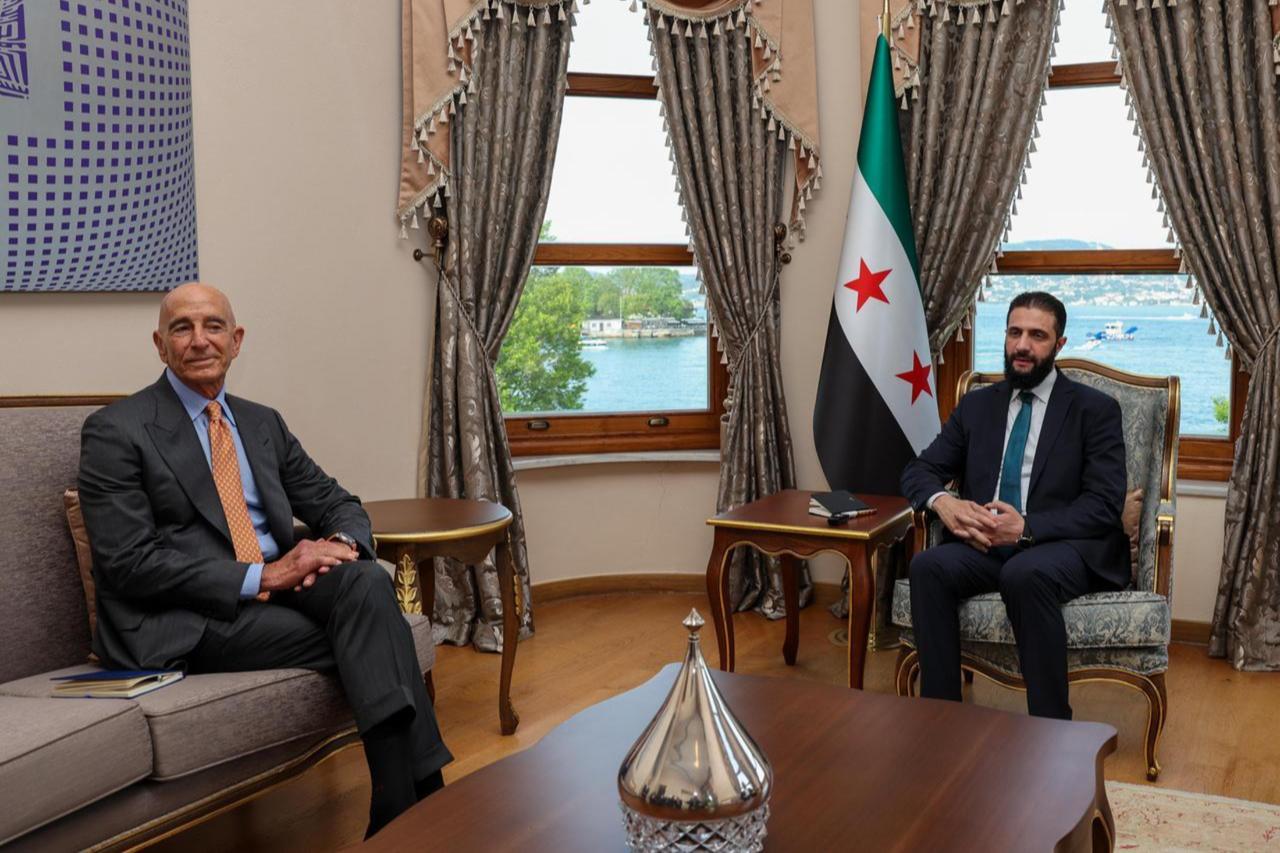
The Israeli military confirmed Wednesday it had carried out an airstrike targeting the entrance to Syria’s General Staff Headquarters and areas surrounding the Presidential Palace in Damascus. The strike, which follows recent unrest in southern Syria involving Druze factions, was presented by Israeli officials as a response to developments in Sweida.
The escalation comes amid Türkiye’s behind-the-scenes efforts to mediate between Syrian and Israeli intelligence circles, including meetings held in Baku and along the Syrian border. These efforts have so far failed to produce results.
Israeli ministers have recently issued threats against Syria’s President Ahmad al-Sharaa. According to regional observers, a withdrawal by Sharaa at this stage could be seen as a political victory for both Druze leader Hikmat al-Hijri and Israel. Yet continuing to resist appears equally precarious, as the Israeli response so far has shown no clear threshold. Wednesday’s airstrikes underscore that ambiguity, placing Damascus in a difficult strategic position.

Tensions between remaining militias in Sweida and the Syrian state have been building for months. A short-lived agreement brokered between Syrian authorities and Druze community figures briefly reduced friction. Under the deal, Syrian military forces were to withdraw from the city of Sweida, leaving local police in charge of day-to-day security, while Druze armed groups agreed to disarm.
However, the accord collapsed after Hikmat al-Hijri, a prominent Druze religious figure with longstanding ties to Israel, reversed his stance and instructed forces loyal to him to attack Syrian government positions.
In response, Syrian security forces moved to restore control, intervening in clashes between Bedouin and Druze groups and reestablishing state presence in contested areas. This was followed by Israeli airstrikes on Syrian positions in and around Sweida—strikes that regional analysts say were aimed at obstructing Damascus’ efforts to reassert sovereignty, rather than preventing escalation.
The attacks also appeared to challenge not only Syrian authority but broader international efforts to reintegrate Syria diplomatically. Gulf states and Türkiye—both of which have invested in Syria’s reconstruction and political normalization—were indirectly impacted by the renewed violence. The airstrikes further complicated U.S. policy objectives in the region.
The Syrian government remains constrained in its ability to respond. Still recovering from more than a decade of civil conflict, it continues to face challenges asserting control in southern regions, particularly where localized actors such as Hijri-aligned Druze groups maintain partial autonomy and foreign connections.
Speaking to Türkiye Today, Ahmet Arda Sensoy, a Syria analyst at the Istanbul-based think tank TAV, said Damascus is balancing between containing these groups and projecting moderation to rejoin international diplomatic frameworks. One possible option, Sensoy suggests, may involve Damascus inviting limited Turkish military engagement in select areas. Though politically sensitive, such an arrangement could provide a temporary layer of security that Syria is unable to construct on its own in the short to medium term.
Following the military operations, the Syrian government effectively reintegrated Sweida under its control and announced a cease-fire, crossing what had long been considered Israel’s self-imposed red line.
This is certainly not a retreat by Damascus. However, stopping Israeli attacks through diplomatic pressure alone also seems unlikely.
Türkiye’s position in Syria continues to reflect both strategic ambition and operational caution. Despite a strong military presence in northern Syria and diplomatic outreach to regional actors, Ankara is unlikely to pursue any direct confrontation with Israel.
Its options are largely confined to diplomatic coordination with Washington, where it seeks to leverage the personal rapport previously established between President Recep Tayyip Erdogan and U.S. President Donald Trump.
Earlier this year, this channel served to restrain Israeli actions, with the president publicly urging Netanyahu to avoid escalating tensions and “be reasonable.”

Washington is also facing renewed pressure over its Syria policy. Tom Barrack, the recently appointed U.S. ambassador to Türkiye and special envoy on Syria, reaffirmed Washington’s commitment to a unified Syrian state, rejecting any movement toward a federal model or autonomous zones.
“There’s not going to be six countries. There’s going to be one Syria,” Barrack said in recent remarks. While consistent with Türkiye’s stance, the statement contrasts with developments on the ground, particularly in the northeast, where Kurdish-led administrations operate with de facto autonomy.
With Israel acting unilaterally, Türkiye seeking strategic room to maneuver, and Syria struggling to regain internal control, U.S. diplomacy faces another test of credibility and influence in a region where competing interests continue to reshape the regional order.